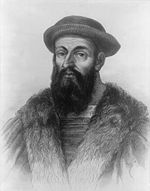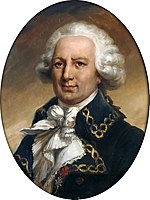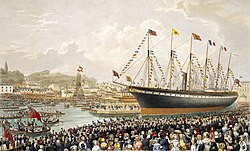
The history of the Falkland Islands goes back at least five hundred years, with active exploration and colonisation only taking place in the 18th century. Nonetheless, the Falkland Islands have been a matter of controversy, as they have been claimed by the French, British, Spaniards and Argentines at various points.

The Falklands War was a ten-week undeclared war between Argentina and the United Kingdom in 1982 over two British dependent territories in the South Atlantic: the Falkland Islands and its territorial dependency, South Georgia and the South Sandwich Islands. The conflict began on 2 April 1982, when Argentina invaded and occupied the Falkland Islands, followed by the invasion of South Georgia the next day. On 5 April, the British government dispatched a naval task force to engage the Argentine Navy and Air Force before making an amphibious assault on the islands. The conflict lasted 74 days and ended with an Argentine surrender on 14 June, returning the islands to British control. In total, 649 Argentine military personnel, 255 British military personnel, and three Falkland Islanders were killed during the hostilities.

Stanley is the capital city of the Falkland Islands. It is located on the island of East Falkland, on a north-facing slope in one of the wettest parts of the islands. At the 2016 census, the city had a population of 2,460. The entire population of the Falkland Islands was 3,398 on Census Day on 9 October 2016.

East Falkland is the largest island of the Falklands in the South Atlantic, having an area of 6,605 km2 or 54% of the total area of the Falklands. The island consists of two main land masses, of which the more southerly is known as Lafonia; it is joined by a narrow isthmus where the settlement of Goose Green is located, and it was the scene of the Battle of Goose Green during the Falklands War.
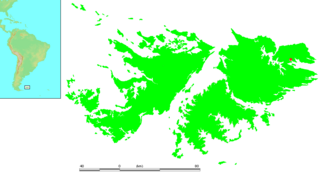
Port Louis is a settlement on northeastern East Falkland. It was established by Louis de Bougainville on 5 April 1764 as the first French settlement on the islands, but was then transferred to Spain in 1767 and renamed Puerto Soledad.
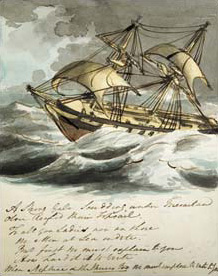
In December 1832, two naval vessels were sent by the United Kingdom to re-assert British sovereignty over the Falkland Islands, after the United Provinces of the Rio de la Plata ignored British diplomatic protests over the appointment of Luis Vernet as governor of the Falkland Islands and a dispute over fishing rights.
Sovereignty over the Falkland Islands is disputed by Argentina and the United Kingdom. The British claim to sovereignty dates from 1690, when they made the first recorded landing on the islands, and the United Kingdom has exercised de facto sovereignty over the archipelago almost continuously since 1833. Argentina has long disputed this claim, having been in control of the islands for a few years prior to 1833. The dispute escalated in 1982, when Argentina invaded the islands, precipitating the Falklands War.

Luis Vernet was a merchant from Hamburg of Huguenot descent. Vernet established a settlement on East Falkland in 1828, after first seeking approval from both the British and Argentine authorities. As such, Vernet is a controversial figure in the history of the Falkland Islands sovereignty dispute.

The Falkland Islands is an archipelago in the South Atlantic Ocean on the Patagonian Shelf. The principal islands are about 300 mi (480 km) east of South America's southern Patagonian coast and about 752 mi (1,210 km) from Cape Dubouzet at the northern tip of the Antarctic Peninsula, at a latitude of about 52°S. The archipelago, with an area of 4,700 sq mi (12,000 km2), comprises East Falkland, West Falkland, and 776 smaller islands. As a British overseas territory, the Falklands have internal self-governance, but the United Kingdom takes responsibility for their defence and foreign affairs. The capital and largest settlement is Stanley on East Falkland.
There were many events leading to the 1982 Falklands War between the United Kingdom and Argentina over possession of the Falkland Islands and South Georgia.

Falkland Islanders derive from various origins. Earliest among these are the numerically small but internationally diverse early 19th century inhabitants of the Falkland Islands, comprising and descended in part from settlers brought by Luis Vernet, and English and American sealers; South American gauchos who settled in the 1840s and 1850s; and since the late 1830s, settlers largely from Britain with a minority from other European countries. There has also been significant recent contributions from Saint Helena and Chile.
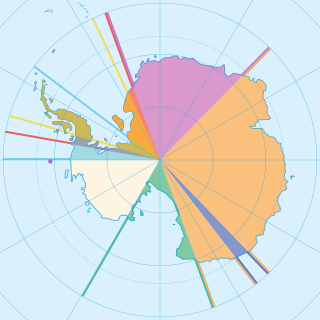
Seven sovereign states – Argentina, Australia, Chile, France, New Zealand, Norway, and the United Kingdom – have made eight territorial claims in Antarctica. These countries have tended to place their Antarctic scientific observation and study facilities within their respective claimed territories; however, a number of such facilities are located outside of the area claimed by their respective countries of operation, and countries without claims such as China, India, Italy, Japan, Pakistan, Russia, South Africa (SANAE), Poland, and the United States have constructed research facilities within the areas claimed by other countries. There are overlaps among the territories claimed by Argentina, Chile, and the United Kingdom.

British sovereignty of South Georgia and the South Sandwich Islands is disputed by Argentina. The United Kingdom claimed South Georgia in 1775, annexed the islands in 1908, and has exercised de facto control with the exception of a brief period during the Falklands War in 1982, when the islands were partially controlled by Argentina. The dispute started in 1927 when Argentina claimed sovereignty over South Georgia, and subsequently expanded in scope with Argentina claiming the South Sandwich Islands in 1938. The islands have no indigenous population, and currently only have about 30 inhabitants.
Antonio "El Gaucho" Rivero was a gaucho known for his leading role in the Port Louis Murders of 26 August 1833, in which five prominent members of the settlement of Port Louis on the Falkland Islands were murdered. In Argentine revisionist historiography and public consciousness, Rivero is viewed as a patriotic hero who rebelled against British authority. However, academic historians both in Argentina and abroad agree that Rivero's actions were not motivated by patriotism, but by disputes over pay and working conditions with the representatives of Louis Vernet, the former Argentine Political and Military Commander of the islands.

The occupation of the Falkland Islands and South Georgia and the South Sandwich Islands was the short-lived Argentine occupation of a group of British islands in the South Atlantic whose sovereignty has long been disputed by Argentina. Until their invasion on 2 April 1982 by the Argentine military junta, they had been governed by the United Kingdom since it re-established control over them in 1833.
A referendum on political status was held in the Falkland Islands on 10–11 March 2013. The Falkland Islanders were asked whether or not they supported the continuation of their status as an Overseas Territory of the United Kingdom in view of Argentina's call for negotiations on the islands' sovereignty.
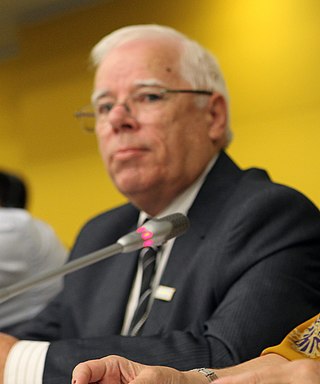
Alejandro Jacobo Betts was a Falklands-born Argentine air-traffic controller and activist who worked with the Argentine government as a technical advisor on the Tierra del Fuego's Malvinas Question Provincial Observatory Advisory Council. Betts supported Argentina's claim to the Falkland Islands and was a controversial figure in the Falklands as a result. Betts also was the older brother of Terry Betts, who served as a member of the Falkland Islands Legislative Council and assisted British forces in the Falklands War. His younger brother Peter served in the British Task Force.

The hijacking of Aerolíneas Argentinas Flight 648 occurred on 28 and 29 September 1966 when a group of Argentine nationalists hijacked a civilian Aerolíneas Argentinas aircraft en route from Buenos Aires to Río Gallegos and forced the captain at gunpoint to land in the Falkland Islands in protest to the UK's presence on the islands. After landing, the hijackers raised the Argentine flag, took several islanders hostage and demanded the Governor of the Falkland Islands recognise Argentine sovereignty over the islands. On 29 September 1966, after negotiating through a Catholic priest, the hijackers surrendered and were returned to Argentina for trial.
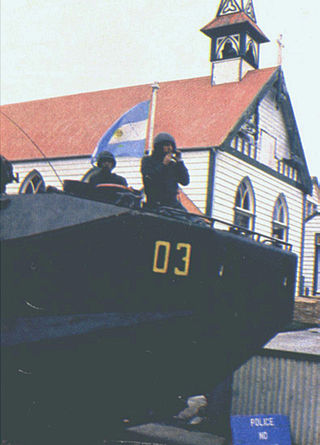
The South Atlantic conflict was a series of crises, undeclared wars, and other conflicts between Argentina, the United Kingdom, and later Chile in the Southern Atlantic Ocean. It was incited by the Argentine navy's prevention of the UK's reoccupation of its territories on the Antarctic Peninsula, and included the Falklands War and Invasion of South Georgia. The conflict, despite a large number of stalemates, ultimately ended in British victory.

